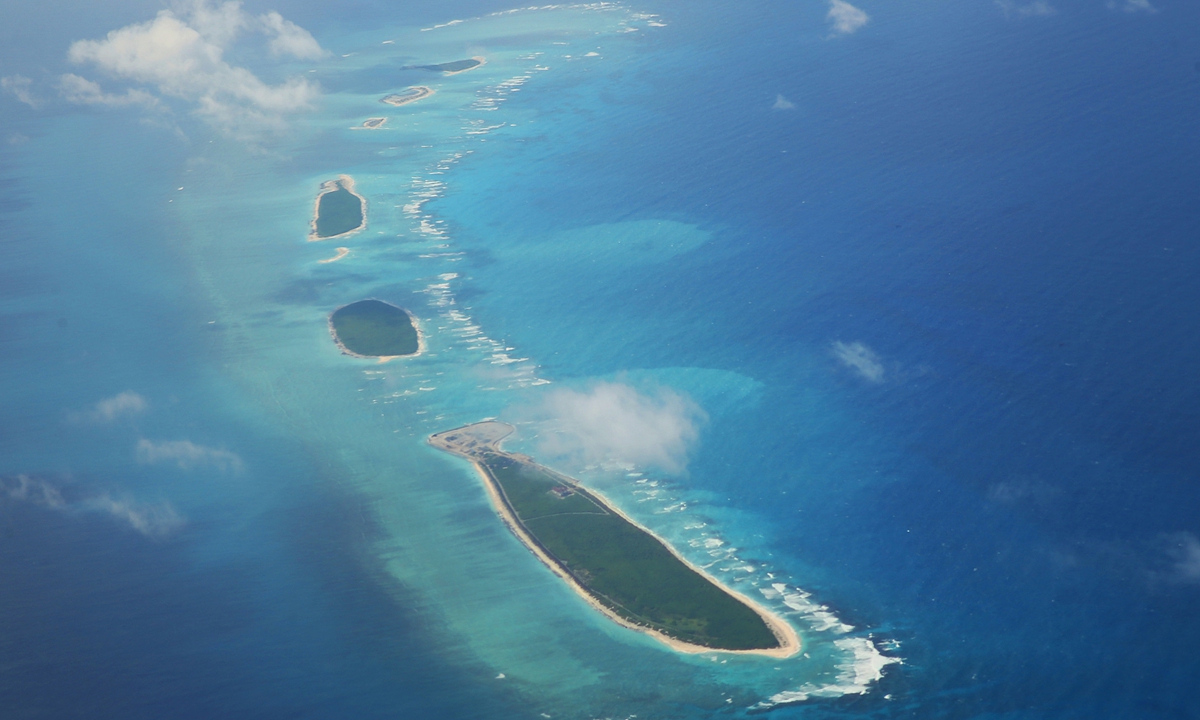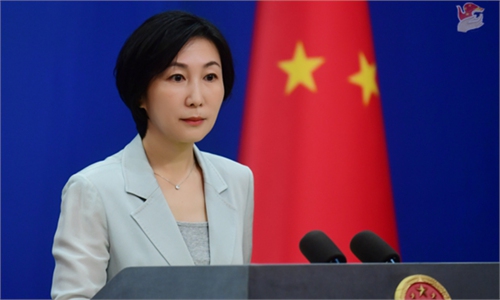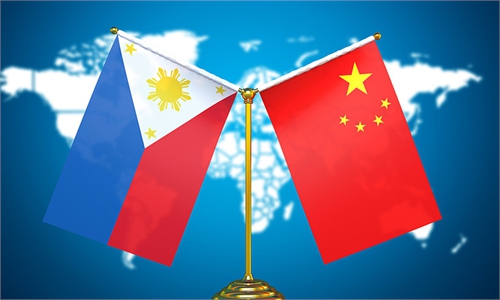
South China Sea Photo: VCG
Formulating a Code of Conduct in the South China Sea (COC) is an important task for China and ASEAN member states to implement the Declaration on the Conduct of Parties in the South China Sea (DOC). Any departure from the DOC framework and its spirit will be null and void, China's Foreign Ministry spokesperson Mao Ning said on Monday. The background of the statement is the Philippines' latest effort to disrupt the COC when the COC is going on the right track.The Philippines is eyeing a new, separate COC with neighboring countries like Vietnam and Malaysia, Philippine President Ferdinand Romualdez Marcos Jr said during a speech in a US think tank on Monday, during his stop in Hawaii to visit the US Indo-Pacific Command. The rhetoric comes about three weeks after the 21st Senior Officials' Meeting on the Implementation of the Declaration on the Conduct of Parties in the South China Sea was held in Beijing on October 26, and a few days after China-Philippines talks during the APEC Economic Leaders' Meeting.
Are there any insoluble stumbling blocks in the COC negotiations? The biggest trouble in the South China Sea does not come from countries within the region but from external forces' disturbances, which attempt to turn the South China Sea into a sea of conflict and a sea of war, Song Zhongping, a Chinese military expert and TV commentator, told the Global Times. Think about the soul-searching question from Singaporean Prime Minister Lee Hsien Loong - The Americans are the treaty ally of the Philippines, but is the country sure it wants to get into a fight where its own land will be the battleground?
Meanwhile, China-ASEAN COC is going on the right track with its own pace. In the October meeting in Beijing, all parties announced the official launch of the third reading of the text of the COC. They agreed to implement the guidelines for accelerating the conclusion of the COC as adopted by the ASEAN-China Foreign Ministers' Meeting, and strive to conclude the COC at an early date, so as to build the South China Sea into a sea of peace, friendship and cooperation.
This means that the conclusion of the COC is not far away - this is also what most countries in the region want, Ma Bo, an associate professor at the School of International Studies at Nanjing University, told the Global Times.
Over the past 20-plus years, the world has witnessed many conflicts and wars, yet those turbulences have not greatly affected the South China Sea, despite its high tensions from time to time, thanks to the negotiations over the COC.
With the COC playing a major role, China-ASEAN relations have become the most successful and dynamic example in the Asia-Pacific region. The two sides have established a comprehensive strategic partnership, signed a free trade agreement, and become each other's largest trading partner, and bilateral investment continues to expand, with active personnel exchanges. Reports show that the South China Sea has become one of the safest and freest waters for navigation in the world today. This is a significant contribution of China and ASEAN members to the international community which also demonstrates the positive effects brought about by the COC.
Against this backdrop, the Philippines has been calculating something new - it now believes that standing absolutely in line with ASEAN no longer brings itself maximum interest. The Philippines wishes to strive for more interests for its own in the third reading of the COC text, by continuing to coordinate with the US in its "Indo-Pacific Strategy." It is also attempting to forge its own clique in the South China Sea. It is doing this to put more pressure on China rather than exercising self-restraint during the process of negotiations, Ma said.
However, during the summit between Chinese President Xi Jinping and US President Joe Biden, the US side has pledged that it does not intend to have a conflict with China. Other ASEAN members will prioritize upholding ASEAN unified stance rather than joining the Philippines' small circle. This is the big picture.
The negotiations of the COC are on the right track. And the COC has been a "pressure relief valve" to ensure the disputes among different parties do not lead to conflicts. The truth is, maintaining peace and stability in the South China Sea best serves the Philippines' development and prosperity.


